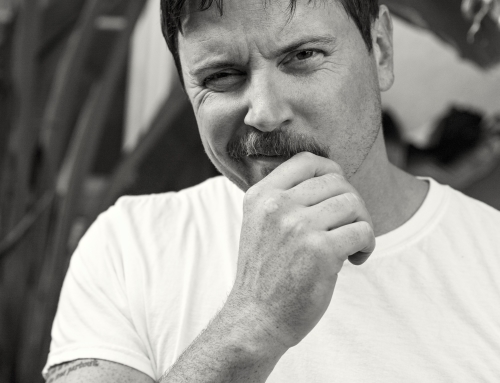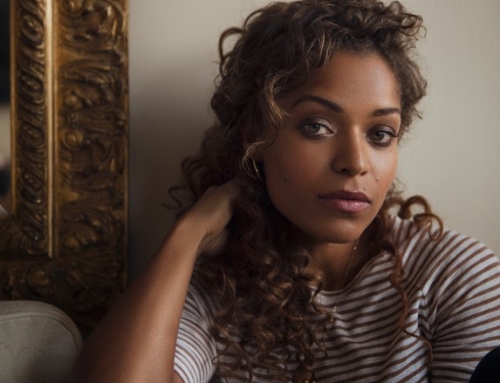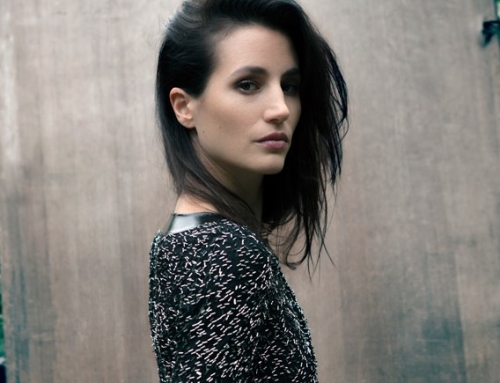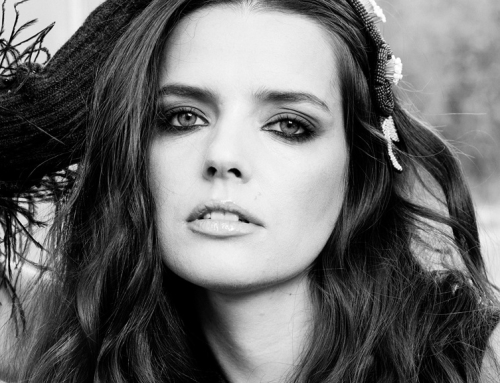Fandemonium shadows Joe Manganiello wherever he goes — even when present in name alone. A virtual prototype of the tall, dark and handsome lot, the 36-year-old actor has mesmerized audiences of HBO’s True Blood since joining the cast as Alcide Herveaux — an uber werewolf turned pack leader with an inspired modicum of Brontë’s Healthcliff — during season three of the series in 2010.
Having nurtured a voracious appetite for mythology since childhood — “those stories are all I read about and cared about as a kid” — as Alcide, Manganiello’s personal allure is amped by a knowledge of ancient folklore and a fascination with the tinge of human nature often colouring tales of the occult.
“The real challenge was making the monster human and grounded and accessible,” says the actor. “That’s the challenge of the show, and what separates it from all of the other supernatural projects out there.”
Evidently an actor with a talent for delving deep into the minds of his characters — to unfurl and present both what appeals and repels — this fall, Manganiello is prepped to take on the demons inside one of American theatre’s most complex miscreants, Stanley Kowalski, in the Yale Repertory Theatre’s production of A Street Car Named Desire by Tennessee Williams. While having made his name in the industry through television shows like How I Met Your Mother and films including Magic Mike (2012), classical theatre was the base of Manganiello training at Carnegie Mellon University School of Drama, and the actor is keen to get back to his roots. “I miss theatre,” he shares. “It’s tightrope walking without the net.”
Climbing the action of season six of True Blood with a play on the horizon, Manganiello takes a moment to talk about humanizing the supernatural, his return to the stage and finding his footing in Hollywood.

When you first graduated from Carnegie Mellon University, were you more interested in focusing your career on theatre, film or television?
When I got out of drama school, all I wanted to do was movies. Cable TV only had The Sopranos. It wasn’t the way it is now, and actors weren’t allowed to do both. You were a TV actor or a movie actor. One or the other. Today, the best written and most interesting projects are all on cable. Movies are generally uninspiring “safe bets” that pay terribly. The business has shifted in that way.
Really? That’s interesting.
With that said, I have had the fortune of working with some of the geniuses of my time in Sam Raimi, Alan Ball, Steven Soderbergh, and most recently David Ayer.
What about theatre? You spent a hefty chunk of time on stage while in drama school.
If you asked me right after graduation from CMU, I would have told you I never wanted to see another theatre stage again…but that changed for me too. I realized how small the community of theatre actors is, especially here in L.A. I have almost a sense of obligation to get out and do it because a.) I’m one of the ones who can and b.) because I realized that I love it and miss it. Live performance may very well be the thing that I do best and enjoy the most in life.
Well, I hear you’re starring in the Yale Rep’s production of A Streetcar Named Desire — nice choice for a return to the stage. Looking forward to acting in front of a live audience?
I miss the energetic interface with the audience. Streetcar is my favourite play and Stanley is one of the most intense, raw parts ever written.
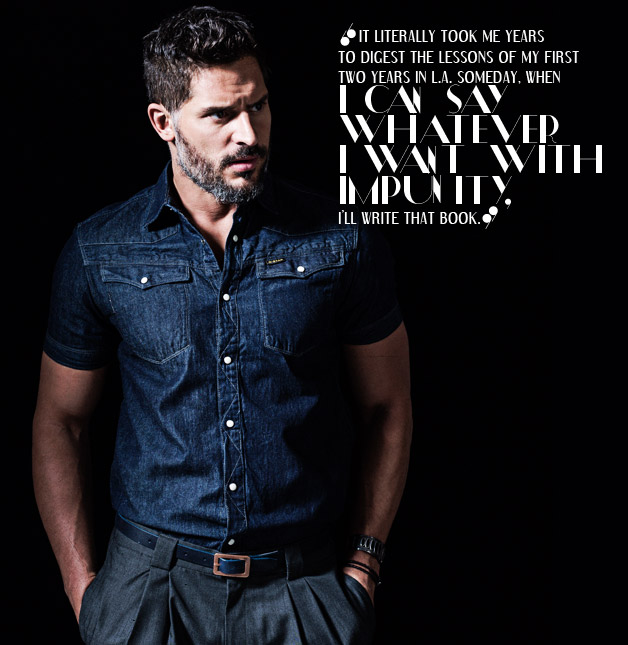
Theatre seems like it would be incredibly absorbing, almost difficult to break out of character. Think you’ll go method for this upcoming production or are you pretty good at stepping away from a character once off the stage/screen?
By method you mean…get drunk, beat my girlfriend, and then rape her sister…? How about no.
Ha, fair enough! So then how do you plan on getting into the Stanley Kowalski character? Even though he’s meant to be this very salt of the earth sort of man, he has such a complex character.
It’s all in the text. I’ll go back over whatever version [director] Mark [Rucker] intends on using with a fine-tooth comb. I haven’t read it in about four years…so I’ll see what jumps out at me now and dig in from there.
Do you have a favourite Stanley performance, on screen or stage?
I saw the Brando movie version when I was in high school. I was really into Brando when I first started acting. He was a rebel who changed acting from the very presentational theatrical style that preceded him and ushered in the modern age of realism in film acting. His performance in Streetcar was the start of that movement.
Sounds like we may see a little Brando in your performance.
The beauty of theatre is that once I get in there, the role will be mine to put my stink on.
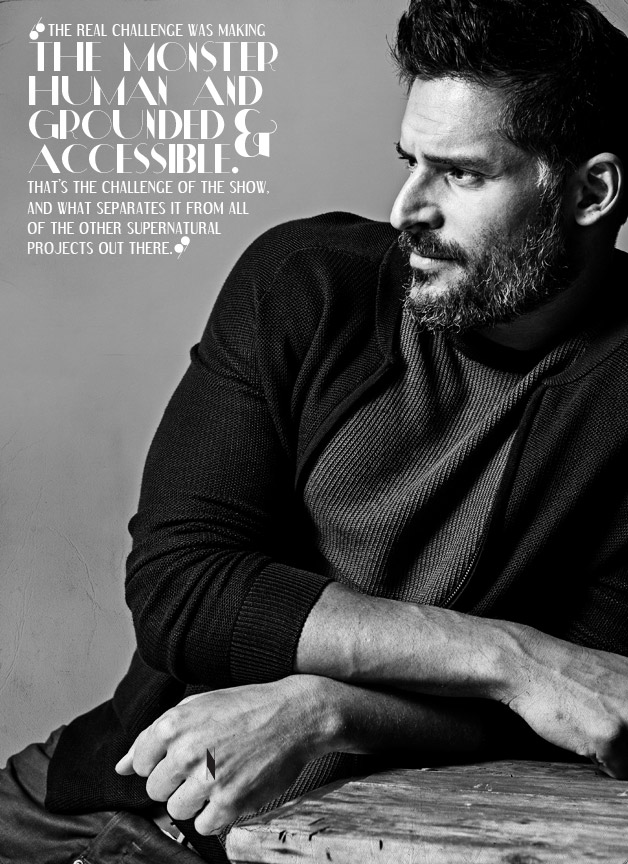
Looking forward to it. Let’s talk a bit about your start in Hollywood, how was it starting fresh out of drama school? Was the world of professional acting what you expected?
I was ready for the business side… the acting side. I just wasn’t ready for being a stupid kid in my twenties in L.A. There were too many bumps and cringeworthy moments to list in this article. It literally took me years to digest the lessons of my first two years in L.A. Someday, when I can say whatever I want with impunity, I’ll write that book.
I foresee a bestseller! Tricky though it may be to navigate, Hollywood is home to some incredible talent. Are there any actors with career paths that inspire your own to some degree?
There are several people whose careers I admire, but there isn’t a particular person I’m modeling my career after. This next year is definitely representative of that in that I will publish my first book as a writer, launch its website and app, finish up the documentary I’m directing, oversee the set up of several scripted movies that I’m producing, premiere the action movie I shot last year, film another year of True Blood for HBO, and get back to the stage for the first time in four years as Stanley Kowalski in A Streetcar Named Desire. I’m not sure who’s career that sounds like…but that’s my kind of year and my kind of career.
It’s impressive for sure, and it sounds like you’re busy in the best way possible. I read that when you landed your role on HBO’s True Blood back in 2010, things weren’t looking as good and that financially, you weren’t in the best position. Do you think that past struggle in some way grounds you now?
I’m assuming this question is derived from an internet CliffsNotes version of someone’s bad interpretation of my Men’s Health article [the other] month, in which I talk very candidly about a particular battle with a particular demon of mine back in 2002. I urge you to read it in entirety, as I can assure you that my finances were the least of my problems at that time.
I will definitely read it, and hope the readers who haven’t yet, will too. Wanna get the full story! So then everything was looking okay in 2010?
My finances were fine when I got True Blood. I was living comfortably and working consistently, but realized that True Blood could be the turning point for me to break out of the mediocrity I’d accepted and fight for something more. My struggles in 2002 however, will serve to ground me for the rest of my life…
I have a feeling that’s a chapter for the bestseller we talked about earlier. About the show, has your role on True Blood opened you up to the world of folklore and mythology at all? There’s a lot of old tales floating out there about vampires and werewolves.
I knew them all already, inside and out. The real challenge was making the monster human and grounded and accessible. That’s the challenge of the show, and what separates it from all of the other supernatural projects out there.
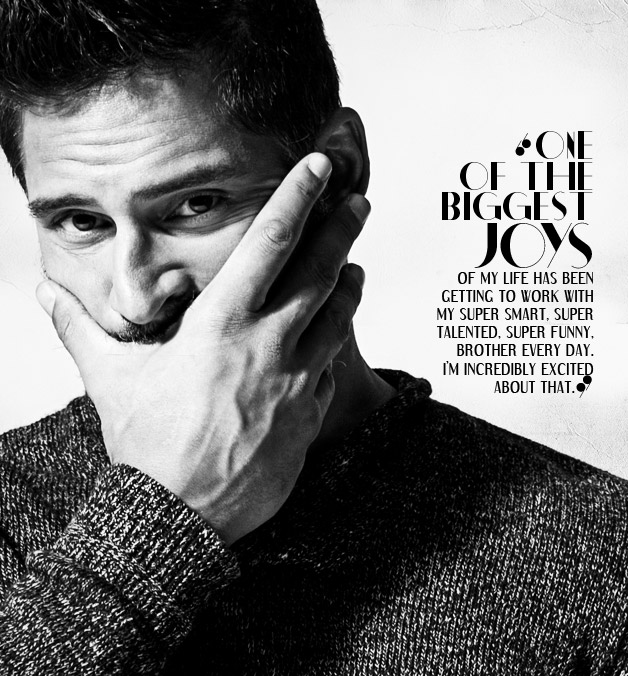
What do you think fuels our enduring fascination with the supernatural? The same myths and legends seem to cross all generations and cultures.
Do you have three days??? They are our modern mythology, our gods and demi-gods fighting and fucking each other and causing trouble for humans the same way the Egyptians and Greeks and Romans had theirs. Our story happened to start off as a series of romantic mystery novels, but went on to speak about death, and sex, and inequality and coincidentally became a lightning rod for cultural conversation.
A whole lot of hot topics get covered. Your character Alcide perceives being a werewolf as a curse, was there any particular experience that you drew from your personal life to understand his angst?
I think every person has something about their past or their present that they are afraid someone won’t accept or will find unloveable. That’s a huge part of Alcide, and probably the main reason he’s had so much difficulty in life and especially with his romantic partners.
Evidently, audience members still manage to find him loveable. Aside from True Blood and your upcoming play, are there any other new projects you have on the go that you’re excited about, acting or otherwise?
I’m insanely excited about my book that hits shelves in December, and I can’t wait to see the fully edited version of the film Sabotage I shot this past year, that drops in January.
Anything else we should be watching out for?
I’m finishing up a documentary I’m filming and producing with my brother that is turning out absolutely unbelievably, and I absolutely cannot wait to be in a theatre to see people’s reactions to it. I’m really inspired and fulfilled creatively when I’m writing and producing. One of the biggest joys of my life has been getting to work with my super smart, super talented, super funny, brother every day. I’m incredibly excited about that.
Published July 24, 2013







